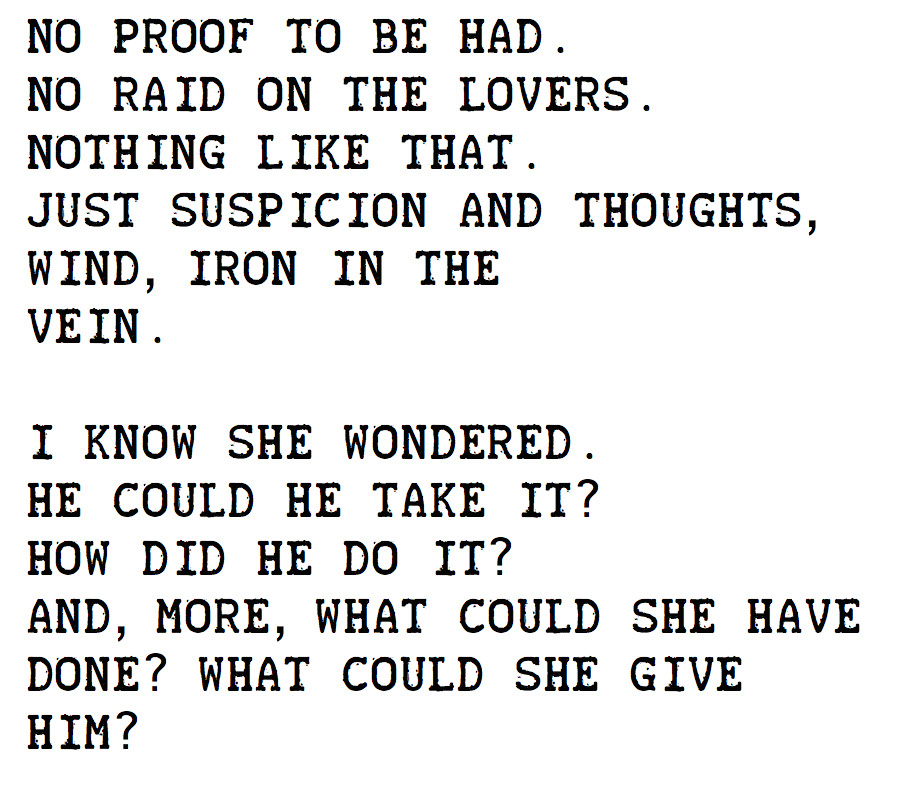
But I also imagined my mother, loving him, a confidante, wanting to help if not always knowing how.
Bell City
My mother was not particularly pretty.
Short, willful, ruddy of face and hands.
“Spunky,” I think they called her,
even in the ‘50s, when young women were,
more often than not, only ladies.
Once they called her brother a “fag”
and she never forgot it.
Even in her old age,
when the past had crystallized
into mortgages and kidney stones,
the memory warped her
present.
Nothing was to be
forgiven.
One time especially,
late November, frost,
wind, iron in the vein,
stone cold, I think they called it,
the beating was not particularly
pretty.
No proof to be had.
No raid on the lovers.
Nothing like that.
Just suspicion and thoughts,
wind, iron in the
vein.
I know she wondered.
He could he take it?
How did he do it?
And, more, what could she have
done? What could she give
him?
Then Christmas with cheer and
peace, a midwinter hiatus
in the grinding of people into
memory and the future.
The Snow Queen Dance
and Mother took Glen, the fag,
as her date.
Thoughts and suspicion,
wind, etc. But she would have
none of it.
They danced and
danced, the last to
leave. Even so, I know
she wondered. How could
he take it? What could she give
him?
It wasn’t long and then they were
gone, together to New Orleans,
the city of sin, they called it,
even in the ‘50s. But it wasn’t
Bell City. It wasn’t
home.
They lived, worked, married
after their own fashion.
One of them had children,
the other did not.
And then one of them
died, leaving the other
with memory and the future,
which, though not particularly
pretty, were spunkier yet. After all,
they had brought her home:
unforgiven, cold,
iron in the vein.
What else could she give him?


